Questions about traveling with a pet?
Contact | email | facebook.
Home > Pet Passports > Saudi Arabia Pet Passport & Import Regulations

Saudi Arabia Pet Passport & Import Regulations

Owners or consignors of all live animals traveling to the Kingdom of Saudi Arabia must register the import with the Ministry of Environment, Water and Agriculture.
Saudi arabia is a difficult country to import a dog. pet owners entering saudi arabia on a tourist visa are not permitted to import a pet. pet owners must enter on a work or residency visa to import a pet. take special note of item #10 which lists restrictions on breed import..
There will be no quarantine imposed on your pet when entering Saudi Arabia as long as the following requirements are met. Unless otherwise stated, the regulations below apply to domestic dogs, cats and ferrets only. Owners of other pets should refer to item 11.
Pet Microchip

The first step to prepare your pet dog or cat to enter Saudi Arabia, is to identify them with an ISO 11784/11785 pet microchip that is a 15 digit and non-encrypted. If your pet's microchip is not ISO 11784/11785 compliant, you can bring your own microchip scanner.
The microchip should be implanted by your veterinarian, veterinary hospital or trained nurse. You should receive documentation as to the manufacturer of the microchip and instructions on how to register your pet's information in the manufacturer database.

Vaccinations

Your pet will need proof of current vaccination against rabies at least 30 days but not more than 6 months before entering Saudi Arabia. Three year vaccines are not recognized.
Other vaccinations for dogs: Canine Distemper, Canine Hepatitis, Canine adenovirus, Canine parainfluenza and Canine parovirus.
Other vaccinations for cats: Feline Distemper, Felline Herpes and Calicvirus.

Rabies Titer Test

A rabies titer test is not required to enter Saudi Arabia.

Pet Health Certificate
A licensed veterinarian in the origination country must complete the Saudi Arabia pet health certificate The certificate must be endorsed by the government agency responsible for the import and export of live animals as well as the Ministry of Foreign Affairs and Saudi Embassy or Consulate in the departing country.
Import Permit
For dogs or cats, the permit must be obtained by the owner (preferred) or an agent in Saudi Arabia at least 14 days in advance. A copy of the health certificate and the owner's identification (passport) must accompany the application. Sponsor or company information must also be included as well as residency or work visa. You will need a picture of your pet to confirm its breed. You need to bring the same picture with you when claiming your dog.
Permits are good for 30 days from issuance.
Advance permission from the local police department is required for Saudi and Arab nationals to import a pet into Saudi Arabia to confirm they have a suitable residence for a pet. Dogs should be classified as working, guard or service dogs. This permission must be obtained before the permit is issued.
Other Forms Required
A letter to the Director of Customs in Saudi Arabia is required notifying them of your pet's arrival. The final step is to apply for an entrance notification. This must be done in Saudi Arabia either by the company for which you work or by an agent in Saudi Arabia.
Other Information
Saudi and Arab Nationals importing dogs must indicate on the paperwork and a licensed veterinarian must state that the dog is being imported as a certified service dog, guard dog or a hunting dog. Only 2 pets are permitted per import permit. Additional imports will need additional copies of owner passport with valid residency visa.
Entering Saudi Arabia by Air

Pets can enter Saudi Arabia at the international airport in Riyadh, Jeddah or Dammam. Notice should be given to veterinary officials so they will be available to inspect your pet upon landing. Pets can arrive as excess baggage or air cargo.
One person can import 2 cats and 2 dogs per every 6 months to Saudi Arabia.
Puppies and Kittens

As puppies and kittens that are not yet 3 months old should not be vaccinated for rabies, they may enter Saudi Arabia until 12 weeks of age on the rabies certificate of their mother.
- Traveling with a puppy
Banned Breeds

The following breeds are banned from entry: Japanese Spitz, Japanese Akita / Akita Imu / Akita, Affenpinscher, Griffon Bruxellois / Brussels Griffon / Brabaneon / Belgian Griffon, Hovawart, Boxer, Bull Dog / English Bull Dog, Rottweiler, All Terriers including Pit Bull and Staffordshire Bull Terriers, Dandie Dinmont Terrier, Lancashire Heeler, Swedish Valhunde / Swedish Cattle Dog / Vasgoispats, Mastiff / Old English Mastiff / Bull Mastiff / Neapolitan Mastiff, Newfoundland, Great Dane / Deutscher Dogge, and Leon Bergehni. Wolf hybreds are not permitted.
Small/toy breeds may enter Saudi Arabia at Riyadh; however, clearance in Dammam and Jeddah may be more difficult.
Exporting Pets Living in Saudi Arabia
Pets leaving Saudi Arabia will need to have proof of vaccinations, a health certificate issued within 10 days of travel, an export permit and a copy of the owner's passport.
Other Animals

Rabbits and birds are not permitted to enter Saudi Arabia. Invertebrates, tropical fish, reptiles, amphibia, mammals such as rodents are not subject to requirements of rabies vaccination, but may have to meet other requirements and should have a health certificate to enter Saudi Arabia Pet owners are strongly advised to seek further information from the relevant authority of their country and/or that of the country of destination.

If your pet is not a dog, cat or ferret, and especially if it is a turtle or parrot, you should verify that it is not protected under the Convention on International Trade in Endangered Species of Wild Fauna and Flora (CITES). You will need to apply for additional permits if this is the case. Over 180 countries participate and enforce CITES regulations.
- Search CITES database .
- Read More about CITES
Need More Assistance?

To the best of our ability, we ensure that recommendations given on PetTravel.com reflect the current regulations. We cannot predict how a given country may enforce these regulations. Noncompliance may result in the need to make arrangements to put your pet into quarantine at your expense, return your pet to the country of origin, or euthanize your pet. We suggest that you minimize the disruptions that may occur by following the rules of the country you are visiting.
Further detail on import permits, costs, tests and procedures are available at minimal cost at PetTravelStore.com . We also stock all the equipment and accessories you will need for traveling with your pet. Same day shipping Monday through Friday until 2:00 PM EST.
HAVE QUESTIONS OR COMMENTS???
Due to the high demand, we may be unable to respond to your question quickly if posted below. If you need a fast response, you can post them directly to our Facebook page , blog , or forum . We will respond as soon as we can.
Please note that the accuracy of comments made from Facebook users other than Pet Travel have not been verified. We do not endorse any person or company that may offer transport services through posts to this webpage.
The Royal Embassy of Saudi Arabia

Consular & Travel Services
Bringing pets to saudi arabia.
Those planning to work and reside in Saudi Arabia and wish to bring in pets should follow the regulations below:
- Provide permit from the Saudi Ministry of Agriculture to bring applicant’s pet(s) into the country.
- Obtain a veterinary health certificate. Certificate must indicate that the pet was examined, has been vaccinated for all possible diseases, and is in good health.
- Health certificate must be authenticated by the State Department Authentication Division .
- Document fees are $8.75/document. Payment must be made through Enjaz website .
- Health certificate must be certified by the Consular Section of the Embassy of the Kingdom of Saudi Arabia in the United States of America.
- seeing-eye dogs
- Exotic and non-domestic animals are not permitted entry into the Kingdom of Saudi Arabia unless used for official government purposes.
- Dangerous and aggressive dogs such as Rottweilers and Pit Bulls are not permitted entry into the Kingdom of Saudi Arabia under any circumstances.
Pardon Our Interruption
As you were browsing something about your browser made us think you were a bot. There are a few reasons this might happen:
- You've disabled JavaScript in your web browser.
- You're a power user moving through this website with super-human speed.
- You've disabled cookies in your web browser.
- A third-party browser plugin, such as Ghostery or NoScript, is preventing JavaScript from running. Additional information is available in this support article .
To regain access, please make sure that cookies and JavaScript are enabled before reloading the page.

- Pet Passports
- Airline Pet Policies
- Ferry Cruise Ship Policies
- Other Forms
- Pet Carriers
- Pet Carrier Accessories
- Pet Crate Accessories
- Pet Microchips
- Microchip Scanners
- Bulk Discounts Microchips Scanners
- New Arrivals
- Customer Gallery
- Security/Privacy
- Shipping/Returns
Popular Brands
- Pet Passport Countries S
Pet Passport Saudi Arabia
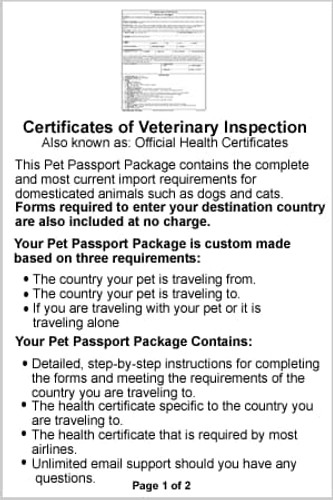
Saudi Arabia Pet Passport - Page 1

Saudi Arabia Pet Passport - Page 2

Add to Wishlist
Please create a new Wishlist
- Description
Pet Passport Kingdom of Saudi Arabia
This package contains information and detailed step by step instructions on importing your dog or cat to Saudi Arabia from any country. If your pet is not traveling to Saudi Arabia, then you can select the country your pet is traveling to by clicking here .
Carefully following these instructions will make clearing customs easier and quicker. The instructions will also help to avoid having your pet denied entry, put into quarantine or returned to your country of origin.

The Pet Passport Store has been a trusted and reliable source of information and products for traveling pet owners for over 14 years. The information we provide in our passports is always the most current and accurate available. We have done the research for you.
What You Get:
- Detailed instructions to import a dog or cat to Saudi Arabia from any country
- Vaccination Requirements
- Microchip Information and Certificate
- Import permit application instructions
- Veterinary Health Certificate
- Consulate Legalization procedure
- Banned Dog Breeds
- Inoculation Record Instructions
- Carrier and Crate Requirements
- Tips on Flying a Pet Internationally
- FREE unlimited email support both for you and your veterinarian, should either of you have any questions.
Also included at no additional cost are the necessary forms to transport your pet to Saudi Arabia.
- Veterinary Health Certificates for Saudi Arabia
- Airline Health Certificate
- Layover Considerations & Requirements for Airline Pet Travel
- Inoculation Record - keep your pet's vaccinations in one place for easy customs clearance
- Pet Passport Folder - (Free with First Class Mail Delivery Options above) Click Here to View
Delivery Options (select above):
Email - faster delivery - multiple copies can be printed if you are transporting more than one pet. First Class Mail - we print instructions and forms and mail to you. There is a cost for printing and postage with this option.
Additional Information:
Is your pet microchipped? Your dog or cat must be microchipped prior to rabies vaccination. Click here for ISO 11784/11785 compliant pet microchips.
Pets flying to Saudi Arabia must do so as checked baggage or air cargo unless flying Ehitad into Abu Dhabi. They will need a pet crate to do that.
It is our objective to prepare the traveling pet owner for all entry requirements that may arise as a result of traveling by air, sea or ground. Enforcement may not be consistent in every country or on every airline, and having proper documentation will better ensure that no problems will arise during your travels.
If you purchase our instructions and forms prior to 30 days before you travel, please check back with us to make sure there have been no changes in the rules or forms required to take your pet to Saudi Arabia. All updated instructions and forms are provided by email free of charge.
We cannot offer refunds on pet passport packages unless there is a problem with the information or forms provided.
You may also need :
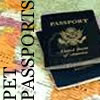
Have a crate for your pet already? Click here to update your pet crate to IATA standards .
Have a carrier for your pet already? Click here for pet pads and accessories .
FAST SHIPPING
EASY RETURNS
GREAT SUPPORT
Related Products

DATAMARS Microchip Scanner Compact Max
Datamars Microchip Scanner - Compact Max This is the North American model of this scanner. It can be used worldwide and reads all the microchips listed below. The best of Datamars reading...
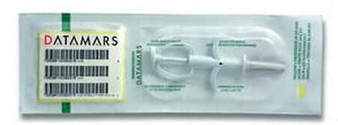
Pet Microchip
Datamars Pet Microchip Registered $14.00 off during our clearance sale!

Petmate Airline Cargo Crate Medium
Petmate Airline or Auto Cargo Crate - Medium

Pet Carrier Sherpa Original Deluxe
Sherpa Pet Carrier - for Dogs and Cats - Original Deluxe Medium and Large Size Priced at cost!

Update Your Pet Crate Kit
Do you already have a crate for your pet? Need accessories to make it IATA compliant? Want products that will keep your pet safe, dry and comfortable? Pick only what you need to bring your...
Datamars Microchip Scanner - Compact Max This is the North American model of this scanner. It…
Sherpa Pet Carrier - for Dogs and Cats - Original Deluxe Medium and Large Size Priced at cost! …
Do you already have a crate for your pet? Need accessories to make it IATA compliant? Want pro…

Call Us now
+1-206 657-6070.

Traveling with Dogs, Cats, and Other Pets: Saudi Arabia to USA: Rules, Requirements, and Tips for Pet Travel
Across The Pond Pets can help you Embark on a journey to move your cherished pets from the USA to Saudi Arabia. Decode the rules and requirements effortlessly for a smooth and successful relocation. Saudi Arabia implements specific regulations to ensure the safety and well-being of your furry companions throughout the relocation process.
Rules and Requirements for Pet Travel to and from Saudi Arabia and the USA:
- Documentation: Whether you're traveling to Saudi Arabia or the USA, having the right documentation is crucial. This typically includes an up-to-date health certificate issued by a licensed veterinarian, demonstrating your pet's good health and current vaccinations.
- Vaccinations: Ensure your pets are adequately vaccinated against common diseases like rabies. Carry vaccination records, as they may be required at various stages of the journey.
- Import and Export Permits: Depending on your origin and destination, you might need to secure import and export permits from the respective authorities. Familiarize yourself with the specific procedures in your home country.
- Pet-Friendly Crates or Carriers: Invest in an appropriate crate or carrier that adheres to pet transportation regulations. The size and features should offer your pets comfort and safety during travel.
- Flight and Accommodation Arrangements: Before your journey, make flight and accommodation reservations that accommodate pets. Be well-informed about the pet policies and restrictions of the chosen airline and accommodations.
Helpful Tips for Traveling with Pets to and from Saudi Arabia and the USA:
- Pre-Trip Preparation: Familiarize your pets with their travel crates or carriers well in advance. Place treats, toys, and familiar items inside to create positive associations and encourage them to spend time in the crates voluntarily.
- Health and Well-being: Keep your pets well-hydrated during the trip, and provide regular breaks for them to stretch and relieve themselves. Consult your veterinarian regarding any necessary medications or special precautions for the journey.
- Gradual Adjustment: Upon arriving in Saudi Arabia or the USA, allow your pets to adapt slowly to their new environment. Create a safe and comfortable space for them as they acclimate to their new home.
Across The Pond Pets understands the strong bond you share with your pets and is dedicated to ensuring their safe journey between Saudi Arabia and the USA. We aim to simplify the entire process for you and your furry friends.
Don't hesitate to contact us for more information about our pet transportation services to and from Saudi Arabia and the USA. We're here to answer your questions and assist you in planning a successful and peaceful trip for your loyal companions.
Traveling with pets can be a rewarding experience, and Across The Pond Pets is here to make that dream a reality. Trust us for the safe and reliable transport of your dogs, cats, and other pets between Saudi Arabia and the USA. Contact us today and begin planning this exciting adventure together!
Get a Pet Travel Quote Our professional team's priority is the safety and well-being of your pet. From our Pet Transport specialist handling all travel logistics to our Pet Handlers handling caring for your pets during travel - the safety and well-being of your pets is our priority.

The complete guide on pet transport to Saudi Arabia
Thinking about importing a pet to saudi arabia, speak to us about transportation for pets to saudi arabia.

Our guide to relocating a pet to Saudi Arabia....
We move all kinds of pets internationally, but this guide will cover transport cats and dogs to saudi arabia., moving internationally with pets to saudi arabia..., our guide to moving a pet to saudi arabia, everything you need to know about pet transport in saudi arabia..., key requirements for pet import to saudi arabia., "must haves" for moving to saudi arabia with pets.
- Your pet requires a valid import permit for entry into Saudi Arabia, we will apply for this on your behalf unless informed otherwise.
- Your pet must travel as manifested cargo, which means that he/she will be travelling as a registered, special cargo shipment and not as part of your luggage allowance.
- A valid microchip must be implanted / scanned prior to your pet’s vaccinations. This must be scanned at each veterinary visit.
- All pets entering Saudi Arabia must have the DEFRA health certificate signed by an official veterinarian (OV vet) within 96 hours prior to departure. Once the documents have been signed by an OV vet they must be sent to the consulate in Milton Keynes & the Saudi Embassy for legalisation. Due to the tight timescale required this cannot be done via postal service and pets will be required to travel to London Heathrow to have the health certificate completed & legalised.
- Your pet must have current vaccinations for the following and the vaccination information must contain the manufacturers name, batch number and expiry date of the vaccine
Importing a dog to Saudi Arabia
"must haves" for moving to saudi arabia with a dog.
Dogs must be vaccinated against the following:
- Rabies – within the 6 months prior to travel but no sooner than 30 days
Importing a cat to Saudi Arabia
"must haves" for moving a cat to saudi arabia.
Cats must be vaccinated against the following:
It is advised they are also vaccinated for the following – this may also be a requirement depending on the airline:
- Feline Pan Leukopenia (FPV) / Enteritis
- Feline Calicivirus
- Feline Rhinotracheitis

What our Saudi Arabia transport service covers...
- Canine Distemper Virus
- Infectious Canine Hepatitis
- Leptospirosis
- Canine Parvovirus
Our Saudi Arabia pet relocation services...
Additional services you may need for pet transport to saudi arabia, how to apply for importing a pet to saudi arabia.
- Proof of rabies vaccine (this can be recorded on a vaccination card)
- Completed contract (attached)
- Copy of your passport.
- Photo of pet/s (facial and full body side on)
- 25% deposit will be requested once your completed contract is returned.
Ways to contact us
Telephone: – 00 44 (0) 1563 829 262
00 44 (0) 141 889 4189
00 44 (0) 191 917 7880
Email: – [email protected]
FAQs for internationally traveling with pets to Saudi Arabia...
Moving pets to Saudi Arabia involves specific steps and adherence to the country’s regulations. Here’s a general guide:
- Research Requirements: Familiarize yourself with Saudi Arabia’s pet import rules, including vaccination and documentation requirements.
- Pet Identification: Ensure your pet has proper identification, including a microchip.
- Vaccinations and Health Certificates: Ensure your pet is up to date on vaccinations and obtain a health certificate from a veterinarian, typically issued within a specific timeframe before travel.
- Import Permit: Apply for an import permit from the Saudi Arabian authorities responsible for animal importation.
- Travel Crate: Get an airline-approved travel crate that is appropriate for your pet’s size and comfort.
- Flight Booking: Choose an airline that transports pets to Saudi Arabia and make a reservation for your pet.
- Documentation: Prepare all necessary documentation, including the import permit, health certificates, and any other required paperwork.
- Customs Clearance: Your pet will undergo customs clearance upon arrival in Saudi Arabia.
- Quarantine: Some pets may be subject to quarantine upon arrival; check Saudi Arabia’s specific quarantine regulations.
- Post-Arrival Care: Ensure your pet’s well-being post-arrival, and provide any additional care needed.
The process may vary depending on your pet’s species, origin, and specific requirements. Starting preparations well in advance and consulting with local authorities or professional pet relocation services is advisable.
The cost of moving pets to Saudi Arabia varies depending on several factors, including the type of pet, the country of origin, and the specific requirements for pet importation. Some potential expenses include:
- Veterinary Costs: Expenses for vaccinations, health certificates, and any required treatments or tests.
- Travel Crate: The cost of an airline-approved travel crate appropriate for your pet’s size.
- Import Permit Fees: Fees for obtaining an import permit from Saudi Arabian authorities.
- Flight Costs: Airline fees for pet transport, which can vary depending on the airline and the pet’s size.
- Quarantine Fees: If your pet is subject to quarantine, there may be associated costs.
- Professional Services: Costs for hiring a professional pet relocation service, if needed.
- Customs Clearance: Any fees related to customs clearance upon arrival.
- Additional Expenses: Miscellaneous expenses, such as document translations or unforeseen costs.
The total cost can range from a few hundred to several thousand dollars. It’s essential to budget carefully and obtain accurate quotes from service providers to plan accordingly.
Transporting a pet overseas to Saudi Arabia involves careful planning and adherence to regulations. Here are the steps to follow:
- Research Requirements: Research Saudi Arabia’s pet import regulations and specific requirements for your pet’s species.
- Professional Assistance: Consider hiring a professional pet relocation service to assist with the process, as they can help navigate the complexities.
- Obtain an Import Permit: Apply for an import permit from the Saudi Arabian authorities responsible for animal importation.
- Health Certificates: Ensure your pet is healthy and has the necessary vaccinations and health certificates, as required.
- Travel Crate: Purchase an airline-approved travel crate that provides comfort and safety for your pet during the journey.
- Flight Booking: Choose an airline with experience in transporting pets to Saudi Arabia and book a pet-friendly flight.
- Customs Clearance: Be prepared for customs clearance procedures upon arrival in Saudi Arabia.
- Quarantine (if applicable): Check if your pet will be subject to quarantine upon arrival and make necessary arrangements.
- Post-Arrival Care: Ensure your pet’s well-being upon arrival and provide any necessary care.
Starting early and staying informed about the specific requirements for your pet’s travel is crucial.
Several airlines transport pets to Saudi Arabia, but it’s important to verify their specific policies, as they may have varying rules and regulations. Some airlines that commonly transport pets to Saudi Arabia include Saudia, Emirates, Qatar Airways, and Turkish Airlines.
When choosing an airline, consider factors such as the route, the type of aircraft used, the pet’s size, and the airline’s experience in handling pet transportation. Always contact the airline directly or visit their website to obtain the most up-to-date information and confirm their pet transport policies.
To bring a pet into Saudi Arabia, follow these general guidelines:
- Microchipping: Ensure your pet has a microchip with up-to-date contact information.
- Vaccinations: Ensure your pet is vaccinated as required by Saudi Arabian authorities. Typically, rabies vaccination is mandatory.
- Health Certificate: Obtain a health certificate issued by a licensed veterinarian within the specified timeframe before travel.
- Travel Crate: Purchase an airline-approved travel crate suitable for your pet’s size and comfort.
- Quarantine (if applicable): Some pets may undergo quarantine upon arrival; verify Saudi Arabia’s quarantine regulations.
- Post-Arrival Care: Ensure your pet’s well-being upon arrival, including any additional care or accommodations they may need.
Always verify the most current requirements and regulations with the Saudi Arabian authorities or a professional pet relocation service, as they may change over time. Starting the process well in advance is crucial to ensure a smooth transition for your pet into Saudi Arabia.
Cost of living
The cost of living in Saudi Arabia is usually lower than in the west with the added benefit of higher salaries and no income tax. Until recently, Saudi Arabia prohibited non-nationals from purchasing property, so all expats were limited to renting. However, laws have recently been relaxed to allow foreigners to buy property for business or residency. For reference, apartments are usually sold between SR3,000 and SR7,000/square meter in the city centre, or between SR1,800 and SR5,000/square meter outside.
Health Care
Expats aren´t entitled to free healthcare and will require private healthcare insurance. While you can visit public hospitals and clinics, wait times can be extensive and the system is complicated. As a result, most expats end up staying in private healthcare. A regular doctor’s appointment at a private clinic costs around SR180, which is very reasonable compared to private healthcare in other countries.
Saudi Arabia’s climate is hot and dry, all year round in most places but the weather does fluctuate from region to region. The summer months can reach temperatures of 40+ degrees, making the winter a much more popular time of year for tourists to visit as temperatures can still reach up to around 20 degrees.
Saudi Arabia’s lifestyle is influenced by its Islamic traditions and desert environment. The country has a rich history and offers a mix of modern and traditional experiences. Social gatherings often revolve around family and hospitality, and there are unique activities like desert safaris.
Saudi Arabia has made significant investments in its education system. It offers free education at all levels, including universities, to Saudi citizens. The country has also been expanding its efforts to welcome international students with scholarships and English-taught programs.
Saudi Arabia has a rich cultural heritage with a strong emphasis on Islamic traditions. The country is known for its historical sites, museums, and traditional arts. Recent reforms have introduced entertainment options and cultural events, making it an exciting time to explore Saudi culture.
Working in Saudi Arabia
Saudi Arabia employs a significant number of foreign workers across various industries. To work in Saudi Arabia, foreigners typically need a valid work visa or residence permit sponsored by an employer. The process can vary based on your job and qualifications.
We help you move with pets to Saudi Arabia

Get our FREE Destination Guide

- Our Services
HEADQUARTERS
Pets on the Move Animal Reception Centre – PETS Approved Glasgow Airport, Cargo Building No.1 Units 1 & 2, Campsie Drive, Paisley, Glasgow, PA3 2SW
OTHER LOCATIONS
- +44 (0) 191 917 7880
- [email protected]
©Pets on the Move. All Rights Reserved. | Cookie Policy | Privacy Policy |
Contact Pets on the Move
I consent to my data from this form being collected and stored to be used according to our privacy policy.
Save yourself weeks of agonizing research. Avoid the common mistakes And get the right information with our complete destination guide

Travelling to Saudi Arabia with Pets: Visa Rules and Regulations
If you are planning to travel to Saudi Arabia with your pets, it is important to be aware of the visa rules and regulations. This guide will provide you with the necessary information to ensure a smooth and hassle-free journey.
Visa Requirements for Pets
In order to bring your pets to Saudi Arabia, you will need to obtain a visa for them. The visa application process may vary depending on the type of pet you have and the purpose of your visit. It is recommended to contact the Saudi Arabian embassy or consulate in your country for detailed instructions.
Documents Required
When applying for a visa for your pets, you will typically need to provide the following documents:
- Valid passport for your pet
- Health certificate issued by a licensed veterinarian
- Proof of vaccinations
- Import permit from the Saudi Arabian Ministry of Environment, Water, and Agriculture
- Proof of ownership
Quarantine Regulations
Saudi Arabia has strict quarantine regulations for pets entering the country. Depending on the type of pet and the country of origin, quarantine periods may vary. It is important to check the latest regulations and requirements before planning your trip.

Traveling with Pets
When traveling to Saudi Arabia with your pets, it is important to ensure their comfort and safety. Here are some tips to consider:
- Book a pet-friendly accommodation
- Ensure your pet is properly secured during travel
- Pack necessary supplies such as food, water, and medications
- Follow airline regulations for pet travel
- Keep your pets documents and vaccination records handy
By following the visa rules and regulations and taking necessary precautions, you can ensure a smooth journey to Saudi Arabia with your beloved pets.
Search Visa and Apply Now
Recent post, blog search by country.

Cat Travel to Saudi Arabia: Is It Possible?
Name: Mick Number of Pets: Two Pet Type: Cats From: Houston, TX To: Jubail, Saudi Arabia
Dear PetRelocation,
Is it possible to bring our cats to Saudi Arabia with us? The trip will more than likely be around 25 hours from beginning to end. Is it even safe for them? To be honest I am on the fence. My option to ship them vs. give them away are equally difficult for my wife and I. Your advice would be most appreciated. Thank you, Mick
Thanks for your inquiry -- we understand how stressful it can be to face an international pet move and hope to shed some light on your options.
First, it is possible to safely move pets to Saudi Arabia from the United States. We have done it many times and would be happy to talk to you about how it all works.
For your information, here's an overview of the pet import requirements for Saudi Arabia as well as a few pet move stories from previous Saudi globetrotters (here's more about a three-dog move to Jeddah and Bronte the cat's move to Thuwal ). As you can see, it takes some time and preparation but it can be done smoothly when handled correctly.
If you'd like to find out more about our services and the associated costs, please fill out our free online quote form . You're also welcome to read over a few pet travel resources, including these frequently asked pet travel questions and common misconceptions about pet travel .
Again, we know it's overwhelming to consider such a long trip for your cats, but as you continue to learn more about pet travel hopefully you'll be able to decide what is right for you and your family. Talking to pet travel experts, discussing the issue with a trusted veterinarian and giving the decision some time can all help.
Please let us know how we can be of assistance as you go forward, and good luck with everything!

Moving with Pets to Saudi Arabia: A Guide to Pet Relocation
Table of contents, preparing for the journey: essential steps for pet relocation.
Moving to a new country can be daunting, especially when you have a beloved pet to accompany you. Follow these essential steps to ensure a seamless transition for your furry companion.
Research Saudi Arabia’s Pet Entry Regulations
Before embarking on this exciting journey, it’s crucial to understand Saudi Arabia’s pet entry regulations. Research the specific requirements for vaccinations, microchipping, and any breed restrictions. Different airlines might also have varying policies, so be sure to check those as well.
In Saudi Arabia, the import of animals is regulated by the Ministry of Environment, Water and Agriculture .
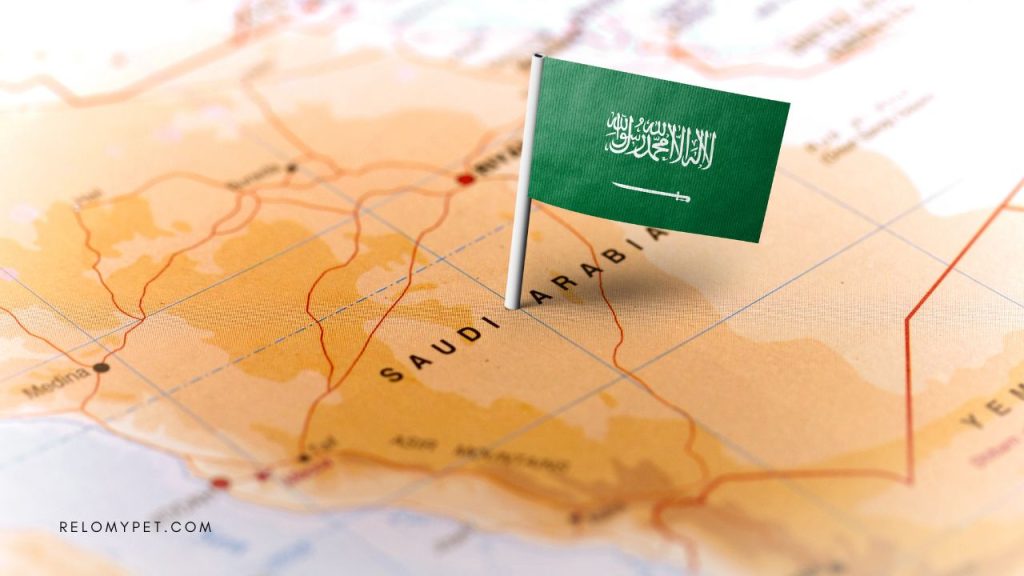
Navigating the Paperwork: Documentation and Legalities
Relocating your pet internationally involves a significant amount of paperwork. To ensure a smooth process, pay attention to the following:
Obtain the Permit from the Saudi Ministry of Agriculture
Before bringing your pets to Saudi Arabia, you will need to secure a permit from the Saudi Ministry of Agriculture. This permit serves as official authorization for your pet’s entry into the country. Make sure to complete this step well in advance to avoid any last-minute complications.
Obtain a Veterinary Health Certificate
A veterinary health certificate APHIS Form 7001 is a crucial document that confirms your pet’s good health and compliance with vaccination requirements. This certificate should be issued by a licensed veterinarian and must indicate that your pet has undergone a comprehensive health examination and received all necessary vaccinations.

Authenticate the Health Certificate
To ensure the validity of the health certificate, it must be authenticated by the State Department Authentication Division . This step helps establish the authenticity of the document and ensures that it’s recognized by the relevant authorities in Saudi Arabia.
Receive All Vaccinations and Certificate
To ensure the health and safety of all pets entering Saudi Arabia, each pet must possess an original Rabies Certificate, duly signed by a certified veterinarian. The rabies vaccine itself must have been administered no less than 30 days before the scheduled departure, while also falling within a window of no more than six months before the travel date.
There are also additional vaccines.
Alongside the Rabies vaccination, dogs must also receive the following vaccinations: Distemper, Hepatitis, Leptospirosis, Parainfluenza, Parvovirus (DHLPP), and Bordetella. These supplementary vaccines must be both valid and administered no less than two weeks before the anticipated export date.
Cats being relocated to Saudi Arabia should be vaccinated against Feline Viral Rhinotracheitis, Calicivirus, and Panleukopenia (FVRCP). Similar to dogs, these vaccines must remain valid and should be administered at least two weeks before the date of export.
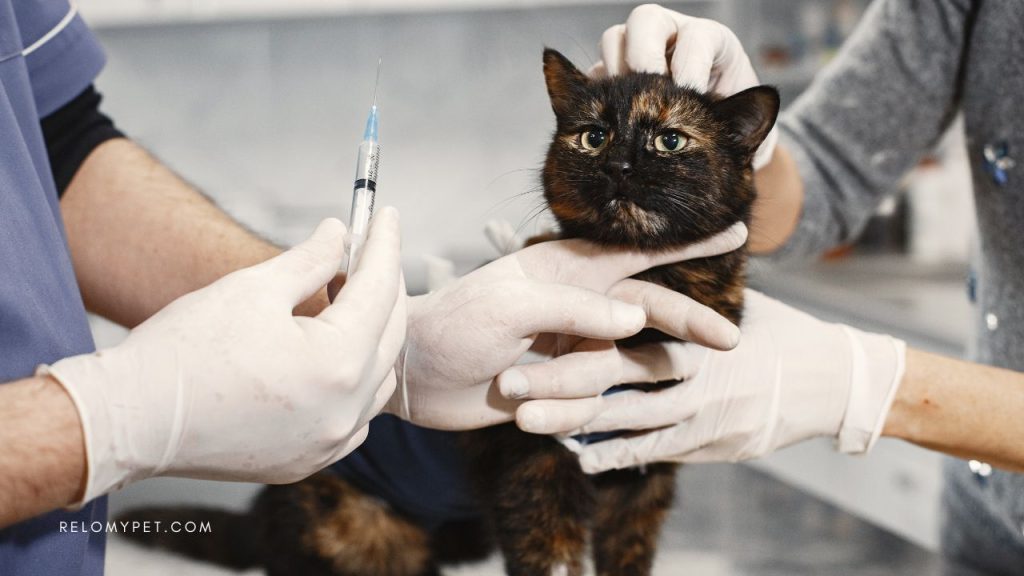
Pay Document Fees Through the Enjaz Website
Document fees for the health certificate amount to $8.75 per document. These fees are typically processed through the Enjaz website , which offers a secure and convenient platform for online payments. Be sure to keep records of your payment for your reference.
Consular Certification by the Saudi Arabian Embassy
After authenticating the health certificate, you’ll need to have it certified by the Consular Section of the Embassy of the Kingdom of Saudi Arabia in Canada or the United States of America . This certification further validates the document’s legitimacy and confirms its compliance with Saudi Arabian regulations.
Microchipping and Identification
Ensure your pet is identified by a microchip that complies with ISO Standard 11784 or Annex A to ISO Standard 11785 and that the information is updated. This is crucial in case your furry friend gets lost during the journey. Additionally, have identification tags with your contact details securely attached to their collar.

Understanding Pet Categories and Restrictions
When it comes to dogs entering Saudi Arabia, there are specific categories and restrictions you should be aware of the following.
Exotic and Non-Domestic Animals
It’s important to note that exotic and non-domestic animals are generally not permitted entry into the Kingdom of Saudi Arabia unless intended for official government purposes. This regulation aims to maintain the country’s ecosystem and ensure the safety of its residents.

Eligible Dog Categories
Dogs eligible for entry into Saudi Arabia fall under the following categories:
- seeing-eye dogs.
These categories are recognized for their specific roles and are generally permitted for import. The dogs’ purpose must be shown in a Veterinary Certificate.

Restrictions on Dangerous and Aggressive Dogs
Certain breeds, such as Rottweilers and Pit Bulls, are considered dangerous and aggressive. As a result, these breeds are not permitted entry into Saudi Arabia under any circumstances. This policy prioritizes public safety and aims to prevent potential risks associated with these breeds.
Banned Breeds
Here is a list of dog breeds that are prohibited from entering Saudi Arabia, including but not limited to:
- Affenpinscher
- Brussels griffon
- Bulldog/English bulldog
- Bullmastiff
- Bull terrier
- Great Dane/Deutscher
- Japanese spitz
- Japanese akita / Akita inu
- Lancashire Heeler
- Mastiff / Old English mastiff
- Newfoundland
- Staffordshire bull terrier/Pitbull
- Swedish Vallhund /Swedish cattle-dog
- All terrier and toy breeds

Before relocating with your pets to Saudi Arabia, carefully review and adhere to these regulations to ensure a seamless transition for your furry companions. By following the required steps, obtaining the necessary documentation, and understanding the specific categories and restrictions, you can look forward to a positive experience as you and your beloved pets embark on this new chapter in Saudi Arabia.
FAQs: Pet Relocation to Saudi Arabia
No, dogs are not banned in Saudi Arabia. However, there are regulations and restrictions in place regarding the import of certain dog breeds. While some categories of dogs, such as hunting, guard, and seeing-eye dogs, are eligible for entry, specific breeds known for their aggressiveness, like Rottweilers and Pit Bulls, are not permitted under any circumstances.
When selecting an airline for your pet’s journey to Saudi Arabia, consider the following factors to ensure their comfort and safety:
- Check the airline’s pet policy: Look for airlines that have clear and comprehensive pet travel policies.
- Cabin vs. cargo: Some airlines allow pets to travel in the cabin with you, while others transport them in the cargo hold. Choose an option that suits your pet’s size and temperament.
- Safety and comfort: Opt for airlines that prioritize the well-being of pets during the journey, offering proper ventilation, temperature control, and secure carriers.
- Direct flights: Whenever possible, choose a direct flight to minimize the duration of travel for your pet.
- Reviews and recommendations: Research reviews and experiences of pet owners who have traveled with the same airline to ensure a positive experience.
To import a pet to Saudi Arabia, follow these steps:
- Obtain a permit from the Saudi Ministry of Agriculture for your pet’s entry.
- Secure a veterinary health certificate from a licensed veterinarian. The certificate should confirm your pet’s good health and vaccinations.
- Authenticate the health certificate through the State Department Authentication Division.
- Pay the required document fees, usually through the Enjaz website.
- Have the health certificate certified by the Consular Section of the Saudi Arabian Embassy in your country.
- Adhere to breed regulations and restrictions for dogs, ensuring your pet falls within eligible categories.
- Prepare your pet for travel by crate training and packing essentials like food, water, medications, and comfort items.
Yes, a veterinary health certificate is a crucial requirement for traveling to Saudi Arabia with your pet. The certificate should confirm that your pet has undergone a health examination, is up-to-date on vaccinations, and is in good health. This certificate needs to be authenticated by relevant authorities and certified by the Saudi Arabian Embassy in your country. It’s important to complete this process well in advance of your travel date to ensure a smooth entry for your pet into Saudi Arabia.
Relocating with your pet to Saudi Arabia requires careful preparation, adherence to regulations, and consideration of your pet’s well-being. By staying informed about the rules and procedures, you can ensure a positive and stress-free experience for both you and your furry companion.
Contact Relopet International
For seamless and stress-free pet transportation services, rely on Relopet International . We understand the importance of your pet’s safety and comfort, and our expertise ensures a smooth travel experience for both you and your furry companion. Contact us today to learn more about our services.
Leave a Comment Cancel Reply
Your email address will not be published. Required fields are marked *
Save my name, email, and website in this browser for the next time I comment.

- [email protected]
- Saudi Arabia
- Expat guide
- Middle East
- Moving to Saudi Arabia with your ...
Traveling to Saudi Arabia with your pet
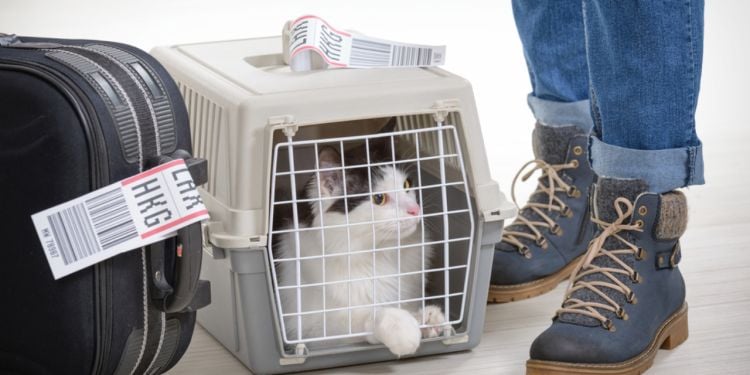
Saudi Arabia is governed by the Shari'a, which is the Islamic Law. According to Wahhabism, animals, and dogs, in particular, are deemed to be impure creatures. Thus, Saudi authorities used to prohibit dogs as well as cats from entering the country for years.
However, foreigners who have settled in Saudi Arabia have managed to take their pets with them and nowadays, it is very common to see expats and locals walking their dogs. In fact, recently, local authorities have set up a series of conditions and regulations so that you can travel to the country with your pet, whether it is a dog or a cat. Parrots and rabbits are not allowed into Saudi Arabia. Note that you cannot bring your pet to Saudi Arabia with a tourist visa. Only foreigners on a working visa or with residency can enter with their pets.
Read also Traveling to Saudi Arabia
Prohibited dog breeds in Saudi Arabia
First, you should know that some dog breeds are strictly prohibited from entering the country. Below is a non-exhaustive list:
- Bull terrier
- Mastiff/Pitbull
- Staffordshire Bull Terrier
- And some others
Risks of traveling to Saudi Arabia with your pet
There are many risks that come with traveling with your pet to Saudi Arabia . One of these is the heat which can be unbearable, particularly in summer. In addition, old pets might find it difficult to adapt to high temperatures in summer.
Will you be able to get up early in the morning or go to bed a little late so that you can take it for a walk to enjoy more reasonable temperatures?
Also, make sure that the compound or independent housing where you will live accepts pets. You are advised to talk about it to your employer to be able to find accommodation where pets are allowed.
Dogs are not allowed on public transport in Saudi Arabia.
Read also Accommodation in Saudi Arabia
Procedures for importing pets to Saudi Arabia
For all kinds of pets eligible to enter the country, a permit to import from the Ministry of Environment, Agriculture and Water is required. Other documents to ensure smooth entrance are the following :
Feline/Cat imports:
- ISO-compliant microchip
- Rabies vaccination - This must be administered at least 30 days but not more than 6 months
- International Health Certificate for Export (issued in the exporting country)
- Saudi Arabian Import Permit (issued by the MOA) - It is important to note that the import permit is valid for 30 days and only for the port/city for which it is issued.
Canine/Dog imports:
- Include vaccination information – batch number and manufacture
- DHC2PP vaccination
- Test results confirming no parasites/infections
- Letter issued by vet stating that the dog is healthy for export and is a guard dog
- International Health Certificate for Export
- Import Permit
If you are taking a dog to Saudi Arabia, it should be classified in the following categories on the health certificate issued by the veterinarian: guard dog or hunting dog, even if it is a Chihuahua! If not, it will not be allowed on Saudi territory. Guide dogs and assistance are welcome, but only under the working dog category.
Custom formalities for cats and birds are more straightforward. However, make sure to check if these are classified as authorized breeds by the National Commission for Wildlife Conservation and Development of
Dogs and cats coming from Europe must receive treatment against ticks and worms before traveling to Saudi Arabia.
Pet quarantine in Saudi Arabia
Quarantine is not required for pets in good health and in the presence of supporting documents.
Taking care of your pet during holidays in Saudi Arabia
If you are going to work in Saudi Arabia , you may travel at least once per year for vacation. Meanwhile, you have to sort out whether your pet is going to accompany you, or you will find someone to take care of them in your absence. Some zoo/ pet shops provide “hotel” services for pets when their owners are traveling. However, make sure to compare the prices before choosing whether to book these services or simply let them board the flight with you.
Fostering a pet in Saudi Arabia
Are you a pet lover, living in Saudi Arabia, who wants to give shelter to a cat/dog? Then, you might join some Facebook groups and receive information about how to get involved. Unfortunately, many people are leaving behind their pets, around the time for the final exit from the Kingdom. There are some charities taking care of these abandoned pets and looking for people who would like to adopt them.
Useful links:
Riyadh Animal Shelter
Ministry of Environment, Agriculture and Water
The 30 teammates strong Expat.com squad comes from a plethora of countries.

Once you decide to make the big move to Saudi Arabia, make sure you put aside enough time to prepare beforehand ...

Saudi Arabia can be a challenging destination for women. As a strict Islamic country, Saudi Arabia imposes a lot ...

Driving in Saudi Arabia is the easiest and most convenient way to get around. That being said, foreigners in Saudi ...

If there was one adjective that could describe dating in Saudi Arabia, it would be the word 'discreet' ...

Saudi Arabia is a country that holds marriage and family as one of its core values. It is a privilege to get ...

Dammam is the capital city of the Eastern Province, which is made up of smaller cities that, together, form the ...
Find more topics on the Saudi Arabia forum

- Politics & Security
- Economy & Business
In cultural shift, Saudi Arabia allows pets on public transportation

Saudi transportation authorities said on Sunday that people are now allowed to bring pets on public transportation in another sign that Saudi Arabia’s conservative cultural norms are changing.
Saudi Arabia’s Transport General Authority posted a lengthy document on X documenting the rights of bus, train and boat passengers in the kingdom. In the document, the authority said that “small” animals can be brought onto modes of transportation provided they are kept in a box or designated area and don't pose a danger or obstruct people’s movement.
The document includes numerous other rules and stipulations related to paying fares, luggage and more. The authority listed fine amounts ranging from 100 to 500 Saudi riyals ($27-$133) for violations. The designated penalty for improperly bringing a pet onto a mode of transportation is refusal of service, according to the document.
The Transport General Authority additionally specified the rights of visually impaired passengers to use service animals on modes of transportation provided they do not impede movement or pose a danger.
Why it matters: Having dogs as pets is relatively uncommon in the Muslim world, though cats are more frequent. Yet the situation has changed somewhat in recent years, including in Saudi Arabia. The Saudi news website Arab News reported in 2018 that some Saudis adopt animals such as cats and dogs from the streets and shelters.
Dogs as pets are particularly taboo in the region. Some Islamic scholars consider dogs to be unclean and prohibit their use as house pets. Owning a dog is legal in Saudi Arabia, however. Only certain dogs are banned in the country, such as pit bulls, according to the website of the Saudi Embassy in Washington.
The decision to allow pets on public transportation is the latest in a series of cultural and societal changes in Saudi Arabia. In May, Al-Monitor reported that Saudi Arabia’s official tourism website specified that LGBTQ tourists and unmarried couples can now visit the kingdom. In 2018, Saudi women finally earned the right to drive, though the treatment of women in the country is still criticized, including in regard to male guardianship laws.
Know more: Many Egyptians have abandoned their pets due to the rising cost of living, Ahmed Hidji reported for Al-Monitor in June.
Related Topics
Sign up for our newsletter, daily briefing, the takeaway, week in review, business & tech briefing, security briefing, china-middle east briefing, gulf briefing, turkey briefing, israel briefing, palestine briefing, us confrontation with iran’s proxies: live q&a with jared szuba and elizabeth hagedorn.

The Israel-Hamas War: Live Q&A with Amb. David Satterfield (Part 2)

Choose your path to continue reading
Enjoy your complimentary article.
Provide your email and get free access to one article.
Thank you! Check your email to view your article.
You have already accessed your free article. Please consider subscribing to access all of Al-Monitor.
Or get unlimited all-access
Subscribe now to access all Al-Monitor content.
- All News & Analysis
- Memos & Reports
- All Newsletters
Oops! It looks like you already enjoyed your free article
To continue reading Al-Monitor articles, please subscribe.
Get unlimited all-access
Update April 12, 2024
Information for u.s. citizens in the middle east.
- Travel Advisories |
- Contact Us |
- MyTravelGov |
Find U.S. Embassies & Consulates
Travel.state.gov, congressional liaison, special issuance agency, u.s. passports, international travel, intercountry adoption, international parental child abduction, records and authentications, popular links, travel advisories, mytravelgov, stay connected, legal resources, legal information, info for u.s. law enforcement, replace or certify documents.
Before You Go
Learn About Your Destination
While Abroad
Emergencies
Share this page:
Saudi Arabia
Travel Advisory January 24, 2024
Saudi arabia - level 3: reconsider travel.
Updated after periodic review to provide information on the risk of arrest due to social media use and the importation of prohibited items.
Reconsider travel to Saudi Arabia due to the threat of missile and drone attacks. Exercise increased caution in Saudi Arabia due to terrorism, the risk of arrest based on social media activity, and importation of prohibited items. Some areas have increased risk. Read the entire Travel Advisory.
Do not travel to the following locations due to the threat of missile and drone attacks and terrorism :
- Within 50 miles of the Saudi-Yemen border, as well as the cities of Abha, Jizan, Najran, and Khamis Mushayt;
- Abha airport;
- Qatif in the Eastern Province and its suburbs, including Awamiyah.
Country Summary : U.S. government personnel under Chief of Mission responsibility must adhere to the above travel restrictions. As such, the U.S. government has limited ability to provide emergency services to U.S. citizens in these locations.
Missile and drone attacks perpetrated by Iran and Iran-supported militant groups have occurred as recently as September 2023. The Islamic Republic of Iran has in the past supplied Yemen-based Houthis and regional proxy groups with weapons to conduct destructive and sometimes lethal attacks using drones, missiles, and rockets against a variety of Saudi sites, including critical infrastructure, civilian airports, military bases, and energy facilities throughout the country, as well as vessels in Red Sea shipping lanes. Past attacks were aimed at targets throughout Saudi Arabia including Riyadh, Jeddah, Dhahran, Jizan, Khamis Mushayt, the civilian airport in Abha, Al Kharj, military installations in the south, as well as oil and gas facilities.
Debris from intercepted drones and missiles has also represented a significant risk to civilian areas and populations in the recent past. Militant groups have threatened to conduct attacks against locations in Saudi Arabia. U.S. citizens living and working near military bases and critical civilian infrastructure, particularly near the border with Yemen, are at heightened risk if missile, drone, or rocket attacks reoccur.
Terrorism continues to be a concern in Saudi Arabia. Attacks can occur with little or no warning. Past attacks have targeted tourist locations, large gatherings, transportation hubs, markets/shopping malls, and local government facilities. Terrorists are also known to time attacks around major holidays and/or in response to military operations. Terrorists have targeted both Saudi and international interests, mosques and other religious sites (both Sunni and Shia), and places frequented by U.S. citizens.
Be advised that social media commentary – including past comments – which Saudi authorities may deem critical, offensive, or disruptive to public order, could lead to arrest . This may include posting, re-posting, or liking comments about Saudi institutions, policies, and public life. U.S. citizens have been convicted for social media activity under Saudi laws concerning cybercrime, terrorism, and disrupting public order. Punishment for social media activity has included prison sentences of up to 45 years in some cases. Saudi courts do not necessarily consider the timeframe of the posts or the location from which they were made to be material to these cases.
The importation of drugs (including marijuana), drug paraphernalia, alcohol, weapons, pork, or any materials that could be considered pornographic or suggestive, is prohibited. Penalties for drug possession, consumption, and trafficking are severe by U.S. standards. An extensive list of banned items is available on our Saudi Arabia country information page .
Due to risks to civil aviation operating within the Persian Gulf and the Gulf of Oman region, including Saudi Arabia, the Federal Aviation Administration (FAA) has issued an advisory Notice to Air Missions (NOTAM). For more information U.S. citizens should consult the Federal Aviation Administration’s Prohibitions, Restrictions and Notices .
Read the country information page for additional information on travel to Saudi Arabia.
If you decide to travel to Saudi Arabia:
- Visit our website for information on travel to high-risk areas .
- Stay alert in large crowds and/or locations frequented by foreign nationals.
- Obtain comprehensive medical insurance that includes medical evacuation.
- Review local laws and conditions before traveling, including our Saudi Arabia country information on arrest notification and the Department of State’s general information on arrests of U.S. citizens abroad .
- Enroll in the Smart Traveler Enrollment Program ( STEP ) to receive Alerts and make it easier to locate you in an emergency.
- Follow the Department of State on Facebook and Twitter .
- Follow the U.S. Embassy in Saudi Arabia on Facebook and Twitter .
- Review the Country Security Report for Saudi Arabia.
- Visit the CDC page for the latest Travel Health Information related to your travel.
- Prepare a contingency plan for emergency situations. Review the Traveler’s Checklist .
Yemen Border, Abha airport, and Qatif in the Eastern Province and its suburbs, including Awamiyah – Level 4: Do Not Travel
Militants in Yemen have attacked Saudi border towns and other sites in Saudi Arabia with armed drones, missiles, and rockets . Civilians that are near the border with Yemen are especially at risk. Terrorist groups continue plotting possible attacks in Saudi Arabia, including in Qatif.
The U.S. government has limited ability to provide emergency services to U.S. citizens within 50 miles of the Saudi-Yemen border as U.S. government personnel and their families are restricted from travel to this area.
Visit our website for information on travel to high-risk areas
Embassy Messages
View Alerts and Messages Archive
Quick Facts
A valid passport is required for U.S. citizens to enter or exit the Kingdom of Saudi Arabia. A minimum of six months’ validity beyond the date of travel is recommended.
One page required for entry stamp.
Required for certain visa classes
More than 16,000 USD must be declared. Customs details are here .
Embassies and Consulates
The normal work week in Saudi Arabia is Sunday through Thursday.
U.S. Embassy Riyadh Abdullah Ibn Hudhafah As Sahmi Street Roundbaout no. 9, Diplomatic Quarter Riyadh, Saudi Arabia Telephone: (966) (11) 488-3800 Emergency Telephone: (966) (11) 488-3800 Fax: (966) (11) 488-7670 [email protected]
U.S. Consulate General Jeddah Al Safa Street, Al Muhammadiyah District, near the new American School building. Jeddah, Saudi Arabia Telephone: (966) (12) 220-5000 Fax: (966) (12) 220-5093 [email protected]
U.S. Consulate General Dhahran Off King Saud bin Abdulaziz Road, at the corner of Salaheddin al Ayoubi Street and Prince Fahd bin Sultan bin Abdulaziz Street, Dhahran, Saudi Arabia Telephone: (966) (13) 839-5700 Emergency Telephone: (966) (13) 839-5700 Fax: (966) (13) 330-6816 [email protected]
Destination Description
Learn about the U.S. relationship to countries around the world.
Entry, Exit and Visa Requirements
See the Embassy of Saudi Arabia’s website for visa information.
COVID-19 Requirements: There are no COVID-related entry requirements for U.S. citizens.
For residency permit-holders (iqama), an exit/reentry permit is required to leave Saudi Arabia as well as six month’s validity on your passport to request an exit/reentry permit.
- Saudi law requires that residency permit-holders carry their residency card (iqama) at all times while in the Kingdom. Failure to do so could result in a fine of 3,000 Saudi riyals and a jail sentence of six weeks.
- Females and minors may require a male guardian’s permission to leave the country, including U.S. citizens or dual-nationals.
- You must exit Saudi Arabia using the passport for the nationality corresponding to the one on which you entered Saudi Arabia.
Saudi law requires all Saudi citizens to enter and depart the country with a Saudi travel document. If you enter the country on a Saudi laissez-passer (temporary travel document), you may encounter difficulty leaving the Kingdom.
Saudi embassies do not have the authority to adjudicate citizenship claims or issue passports, but they may issue a laissez-passer for presumed Saudi citizens for whom citizenship has not been adjudicated, such as children of a Saudi parent or parents who were married outside of Saudi Arabia. Once admitted to Saudi Arabia on a laissez-passer, the traveler must obtain a Saudi passport before leaving the country. Saudi nationality is not conferred quickly or easily, and the processing time for a Saudi passport in these cases has often been six months or years in some cases. Obtaining a U.S. passport will not help, as you will not be able to leave Saudi Arabia without an exit visa which will not be granted if you entered as a Saudi citizen.
The Department strongly recommends that U.S. citizens enter Saudi Arabia on a U.S. passport and Saudi visa, and not a laissez-passer.
Length of Stay: Bearers of tourist visas are generally admitted for a 90-day stay and may not remain in the Kingdom more than 180 days in a twelve month period. Carefully check your visa validity and length of stay granted, and clarify any questions on permitted length of stay with Saudi immigration officials on arrival. Dates are calculated in accordance with the Hijri calendar, which differs from the Gregorian calendar.
If you overstay your visa, you could face significant fines, detention, and/or deportation, and a ban from returning to Saudi Arabia.
The U.S. Embassy is unable to intercede, reduce fines, or prevent incarceration if you violate Saudi law.
Travel Bans: When placed under a travel ban, you cannot exit the country, even if you are a U.S. citizen or a dual U.S.-Saudi citizen. Travel bans are rigidly enforced and can take months or even years to resolve. Only Saudi Arabian authorities and sponsors can remove travel bans.
The government may issue travel bans on people who are/have:
- charged with criminal offenses;
- under investigation;
- involved in financial or labor disputes;
- failed to report to work according to the terms of the contract (absconded);
- unpaid debts or who have passed bad checks.
The list above is not exhaustive. Private Saudi citizens may also initiate travel bans against foreign citizens for various reasons.
Residency Permits: If you are seeking residency in Saudi Arabia, make sure you have all required legal documents authenticated before arriving. Neither the U.S. Embassy in Riyadh nor the U.S. Consulates General in Jeddah or Dhahran can provide this service.
You should have all U.S. issued documents authenticated by the Department of State Office of Authentications (202-485-8000) and attested by the Embassy of Saudi Arabia in Washington D.C.
Work Visas: If you plan on working in Saudi Arabia, you must obtain a work visa before you arrive. Foreigners working in Saudi Arabia are subject to the country’s sponsorship system, which concedes substantial legal authority over the worker to the employer. This can include the ability to prevent the employee from leaving the country. American citizens considering working in Saudi Arabia should carefully review the information about employment in the “Local Laws and Special Circumstances” section below.
If the visitor or business visa has been annotated “not permitted to work,” you are not allowed to legally work in Saudi Arabia. You risk substantial financial penalties, detention, deportation, and a ban from returning to Saudi Arabia if you work without legal permission. Additionally, without a work visa, there would be no legal grounds to pursue a case against an employer should a dispute arise.
HIV/AIDS: To obtain work and residence permits, you are required to obtain a medical report or physical examination confirming that you are free from contagious diseases, including HIV/AIDS and hepatitis. If you test positive for HIV/AIDS or hepatitis, you will not be allowed to work in the Kingdom. Saudi Arabia has not imposed HIV/AIDS or hepatitis travel restrictions on other categories of travelers. Please inquire directly with the Embassy of Saudi Arabia before you travel.
Vaccinations: Visitors to Saudi Arabia should check vaccination requirements on the Saudi Ministry of Health website.
Yemen Travel: The Department strongly advises U.S. citizens against travel to Yemen due to the ongoing conflict in that country. See our Yemen Travel Advisory for further information. A visa is required to enter Saudi Arabia, and Saudi authorities generally do not permit foreign citizens to enter Saudi Arabia using land border crossings from Yemen. The Embassy and Consulates General cannot provide assistance to U.S. citizens seeking to cross the Yemeni-Saudi border.
Safety and Security
The Department of State advises you to exercise increased caution when traveling to Saudi Arabia due to terrorism and the threat of missile and drone attacks on civilian targets. See the Travel Advisory for Saudi Arabia here .
Do not travel:
- Within 50 miles of the border with Yemen due to terrorism and armed conflict.
Terrorist groups continue plotting possible attacks in Saudi Arabia. Terrorists may attack with little or no warning, targeting tourist locations, transportation hubs, markets/shopping malls, and local government facilities. Terrorists have targeted both Saudi and Western government interests, mosques and other religious sites (both Sunni and Shia), and places frequented by U.S. citizens and other Westerners.
Houthis operating in Yemen have fired long-range missiles into Saudi Arabia, specifically targeting populated areas and civilian infrastructure; they have publicly stated their intent to continue doing so. Missile attacks have targeted major cities such as Riyadh and Jeddah, Riyadh’s international airport, Saudi Aramco facilities, and vessels in Red Sea shipping lanes. Rebel groups are also in possession of unmanned aerial systems (UASs or drones) which they have used to target civilian infrastructure and military facilities in Saudi Arabia. U.S. citizens living and working on or near such installations, particularly in areas near the border with Yemen, are at heightened risk of missile and drone attack.
On October 11, 2018 the Saudi General Authority for Civil Aviation issued a Notice to Airmen about threats to civil aviation and airports in Saudi Arabia posed by missiles and UASs launched from Yemen. For more information, U.S. citizens should consult the U.S. Government’s Defense Internet NOTAM Service (Type “OEJD” in the search field, then click “View NOTAMs,” then scroll down to W0438/18 and click to view).
The U.S. government has limited ability to provide emergency services to U.S. citizens in the following locations as U.S. government personnel and their families are restricted from travel to:
- Within 50 miles of the Saudi-Yemen border, including the cities of Jizan and Najran;
- Qatif in the Eastern province and its suburbs, including Awamiyah.
You can find additional details relating to safety and security in our Travel Advisory and Alerts and the website of the U.S. Mission in Saudi Arabia .
Crime: Crime in Saudi Arabia has increased over recent years but remains at levels far below most major metropolitan areas in the United States.
- You should be aware of your surroundings, keep valuables out of sight and secure, and travel with a companion, if possible.
- Some Saudi citizens who perceive that a foreigner is not observing conservative standards of conduct or dress have been known to harass, pursue, or assault that person.
- Even when released from detention, witnesses to criminal incidents may be prohibited from leaving the country until investigation of the incident is complete.
See the websites of the Department of State and the FBI for information on scams.
Victims of Crime: If you or someone you know becomes the victim of a crime, you should contact the local police at “999” and contact the Embassy in Riyadh or one of the Consulates in Jeddah or Dhahran.Remember that local authorities are responsible for investigating and prosecuting the crime.
See the Department of State’s webpage on help for U.S. victims of crime overseas .
The Department can:
- help you identify appropriate medical care;
- assist you in reporting a crime to the police;
- contact relatives or friends with your written consent;
- explain the local criminal justice process in general terms;
- provide a list of local attorneys;
- provide information on victim’s compensation programs in the U.S. ;
- provide an emergency loan for repatriation to the United States and/or limited medical support in cases of destitution;
- help you find accommodation and arrange flights home;
- replace a stolen or lost passport.
Domestic Violence: If you are the victim of any form of physical violence, including domestic violence, you should contact the Saudi police by calling “999”. In addition, victims of domestic violence can contact the Saudi National Domestic Violence Hotline by dialing “1919.” The Saudi Ministry of Labor and Social Development runs a network of shelters for women and children. Contacting the domestic violence hotline (“1919”) is the only way to access these shelters. The Saudi National Family Safety Program also runs a Child Help Line “116111” and can assist children in accessing Saudi social services.
When reporting domestic violence, it is imperative to get a case reference number as all Saudi social and legal assistance is tied to this case number. It is also a good idea to document any injuries and obtain a copy of any medical reports. U.S. citizens should be advised that filing a police report or utilizing any Saudi victims’ assistance services may result in the Saudi authorities informing your sponsor or guardian.
U.S. citizen victims of domestic violence may contact the Embassy or Consulates for assistance.
Tourism: The tourism industry is unevenly regulated, and safety inspections for equipment and facilities do not commonly occur. Hazardous areas/activities are not always identified with appropriate signage, and staff may not be trained or certified either by the host government or by recognized authorities in the field. In the event of an injury, appropriate medical treatment is typically available only in/near major cities. First responders are generally unable to access areas outside of major cities and to provide urgent medical treatment. U.S. citizens are encouraged to purchase medical evacuation insurance. See our webpage for more information on insurance providers for overseas coverage .
Local Laws & Special Circumstances
Dual Citizenship: Saudi Arabia generally does not recognize dual nationality. Saudi law requires Saudi citizens to obtain official permission from the government before obtaining a second nationality. At times, Saudi authorities have confiscated the passports of U.S. citizens applying for Saudi citizenship. This does not constitute loss of U.S. citizenship. If this happens to you or someone you know, report the incident to the U.S. Embassy.
Arrest Notification: If you are arrested or detained, ask police or prison officials to notify the U.S. Embassy or consulate immediately. Be aware that Saudi Arabia generally restricts consular notification of the arrest of foreigners to the Embassy of the country that issued the travel document used to enter the Kingdom. If you enter Saudi Arabia with a Saudi travel document, or with the passport of a country other than the United States, it will be extremely difficult for the U.S. Embassy to provide consular services if you are subsequently detained. Persons detained in Saudi Arabia may be held without charges for lengthy periods and denied access to counsel; dual citizens may not have consular assistance. See the Embassy’s webpage for further information.
Drones: The importation of drones for commercial or personal use is prohibited without prior approval from the General Authority for Civil Aviation (GACA). A customs clearance certificate authorizing importation can be obtained as part of the GACA approval process. Visit GACA’s website for further information.
Criminal Penalties: While in Saudi Arabia, you are subject to local laws. If you violate Saudi laws, even unknowingly, you may be expelled; arrested; imprisoned; held without trial for lengthy periods of time; interrogated without counsel; subject to corporal punishments, including lashings; or executed.
Penalties for the import, manufacture, possession, and consumption of alcohol or illegal drugs in Saudi Arabia are severe. Convicted offenders can expect long jail sentences, heavy fines, public floggings, and deportation. The penalty for drug trafficking is death. Furthermore, some laws are prosecutable in the United States regardless of local law. For examples, see our webpage on crimes against minors abroad and the Department of Justice website .
There are substantial limitations on freedom of speech and political expression in Saudi Arabia. For additional information see the Department of State’s Human Rights Report for Saudi Arabia .
Faith-Related Travel Issues: Islam is the official religion of the country and is present in all aspects of life in Saudi Arabia. See our Hajj and Umrah Fact Sheet .
- Saudi authorities do not permit criticism of Islam or Muslim religious figures, including on social media.
- The government prohibits the public practice of religions other than Islam. Non-Muslims suspected of violating these restrictions have been jailed and/or deported. Church services in private homes have been raided, and participants have been jailed and/or deported.
- Muslims who do not adhere to the strict interpretation of Islam prevalent in much of Saudi Arabia may encounter societal discrimination and constraints on public worship.
- Public display of non-Islamic religious articles, such as crosses and Bibles, is not permitted.
- Non-Muslims are forbidden to travel to Mecca and parts of Medina, the cities where two of Islam’s holiest mosques are located.
- See the Department of State’s International Religious Freedom Report .
LGBTI Travelers: Same-sex sexual relations, even when consensual, are criminalized in Saudi Arabia. Violations of Saudi laws governing perceived expressions of, or support for, same-sex sexual relations, including on social media, may be subject to severe punishment. Potential penalties include fines, jail time, or death. See our LGBTI Travel Information page and section 6 of the Department of State's Human Rights report for further details.
Travelers Who Require Accessibility Assistance: Individuals with disabilities may find accessibility and accommodation very different from what is generally found in the United States. Saudi law does not prohibit discrimination against people with disabilities, and there is no legislation requiring public accessibility. Newer commercial and government buildings, however, often include such access. According to the Ministry of Labor and Social Development, there are numerous government-sponsored centers for people with disabilities. Note that Saudi Arabia has limited infrastructure to care for those with mental disabilities.
Students: See the Department’s Students Abroad page and FBI travel tips .
Women Residents and Travelers: Married women, including non-Saudis, require their husband's permission to depart the country, while unmarried women and children require the permission of their father or male guardian.
Minor children must have their father’s permission in order to leave the Kingdom. Children visiting their fathers in Saudi Arabia, even when there is a custody agreement, can be prevented from leaving unless the father consents. This is true even if the child is an American citizen. The U.S. Embassy and Consulates cannot obtain exit visas for the departure of minor children without their father/guardian's permission.
If a foreigner and a Saudi living in Saudi Arabia divorce, Saudi courts rarely grant permission for the foreign parent to leave the country with the children born during the marriage, even if he or she has been granted physical custody.
Foreign mothers of Saudi children, who are divorced or widowed, may apply for a permanent residency permit(iqama) without the need for a sponsor. To do so, they must prove maternity and that they were legally married to the Saudi father.
Also see the Department’s travel tips for Women Travelers .
Employment: The Arabic text of a contract governs employment and business arrangements under Saudi law. Verbal assurances or side letters are not binding under Saudi law. In the event of any contract dispute, Saudi authorities refer to the written contract.
- Sponsors have wide latitude and responsibilities for employees and family members under their sponsorship, including obtaining residence permits for the employee and for any family members.
- All residents should be issued a Saudi residence permit (iqama) and are legally required to carry it at all times.
- The U.S. Embassy and Consulates General in Saudi Arabia cannot sponsor private U.S. citizens for Saudi visas.
- Sponsors have been known to demand that residents working in Saudi Arabia surrender their passports while in the Kingdom. Such practices are illegal and should be reported to the Ministry of Labor and Social Development .
- Since the Saudi sponsor controls the issuance of exit permits, U.S. citizens may be prevented by the sponsor from leaving Saudi Arabia in the event of a labor or business dispute, which could take months or years to resolve.
- To change employers within the Kingdom, Saudi Arabia requires the written permission of the original sponsoring employer.
- The U.S. Embassy and U.S. Consulates General cannot assist in labor or business disputes, nor can they provide translation or legal services.
- U.S. consular officers can provide lists of local attorneys to help U.S. citizens settle business disputes, but ultimate responsibility for the resolution of disputes through the Saudi legal system, and payment for those services, lies with the parties involved. For additional information on Saudi labor law, please refer to the Ministry of Labor and Social Development’s webpage .
- Saudi customs authorities enforce strict regulations concerning the importation of such banned items as alcohol, weapons, and any item that is held to be contrary to the tenets of Islam (such as pork, anything considered pornographic under strict Islamic principles, and religious materials).
- Imported and domestic audiovisual media and reading matter are censored.
- Christmas and other holiday decorations, fashion magazines, and "suggestive" videos may be confiscated and the owner subject to penalties and fines.
- Electronic devices may be subject to inspection upon entry or exit. Please see the Department’s Customs Information page as well as the Saudi Customs webpage.
Importing Animals: The Saudi Ministry of Agriculture must approve all pets imported into Saudi Arabia.
- Cats and dogs entering Saudi Arabia require a Veterinary Health Certificate and a dated letter from the veterinary practitioner addressed to his/her sponsor to obtain the necessary approval from the Ministry of Agriculture.
- Both documents must be authenticated by the Department of Agriculture Veterinary Service Office and the State Department's Authentications Office and attested by the Embassy of Saudi Arabia .
- The certificate must indicate that the animal was examined and is free from disease and confirm that rabies and other vaccines are current. Information on the name, breed, sex, color, and age of the animal must also be stated.
- Please see additional information on taking a pet overseas .
Teaching English in Saudi Arabia: In recent years, increasing numbers of American language teachers have experienced contractual and other problems. Some teachers have complained about arbitrary dismissals, difficult living conditions, salary arrears, unwanted reassignments, restrictions on their movement, and inability to leave the country. Prospective teachers in Saudi Arabia should vet their potential employer and carefully review their employment offer as well as the detailed information found in the Embassy’s Guide to Teaching English in Saudi Arabia . Additionally, prospective teachers should also take care to make sure that they obtain the appropriate work visa prior to coming to Saudi Arabia. The Embassy cannot help you if you violate Saudi labor law.
Standards of Conduct and Religious Police: Norms for public behavior in Saudi Arabia are extremely conservative. Both the uniformed police and the religious police, referred to colloquially as the mutawwa or al-hay’a, are charged with enforcing these standards.
- Mutawwa are required to carry special identification and usually are accompanied by uniformed police.
- While a 2016 government decree withdrew the authority of the mutawwa to make arrests independently of regular police forces, visitors should be prudent in their interactions with mutawwa.
- An individual must, if requested, present his/her residence permit (iqama) or other identification to the mutawwa or the police.
- U.S. citizens who are involved in an incident with the mutawwa should report the incident to the U.S. Embassy in Riyadh or the U.S. Consulates General in Jeddah or Dhahran.
In most areas of Saudi Arabia, and particularly in Riyadh and the central part of the Kingdom, women wear a full-length covering known as an abaya. Most women in conservative areas also cover their hair with a hijab for modesty, and many also cover their faces with a niqab.
Tourists are expected to dress modestly in public, avoiding tight fitting clothing or clothes with profane language or images; women are not required to wear abayas or cover their hair but are expected to cover their shoulders and knees, and men should not go without a shirt. Women who choose not to conform to Saudi Arabia’s dress code face a risk of confrontation by mutawwa, negative or hostile comments by Saudi citizens, and possible detention Guidelines on public decorum for tourists are available at the Saudi government’s official tourism website, www.visitsaudi.com. Many areas of life in Saudi Arabia are segregated by sex to ensure that unrelated men and women have no possibility of mingling (a punishable crime) by unmarried men and women. Less frequently, members of the mutawwa try to enforce this by asking for proof that a couple is married or related. Men and women detained for socializing with individuals who are not relatives may be charged with moral crimes such as khulwa (mixing with unrelated members of the opposite sex). Less frequently, some restaurants may refuse to serve women who are not accompanied by a close male relative In addition, a few restaurants or cafes do not have a "family section" in which women are permitted to eat. Men not accompanied by a close female family member are not allowed to enter family sections and cannot use services (such as registers at supermarkets) designated as “family.” These restrictions are not always clearly posted.
While there are now movie theaters, musical concerts, and artistic performances in Saudi Arabia, the country remains socially conservative. Social media postings which contravene cultural standards can have legal and/or criminal consequences.
Photography: The Saudi government does not permit photography of governmental facilities, such as military bases and government buildings, nor military, security, or police personnel. The Saudi government is also sensitive to photographs that may be perceived as portraying the country in an unfavorable light. This policy can include photos of mosques, impoverished areas, the local population, and traditional souks (markets). You should not take anyone’s picture without clear consent, and never take a picture of a woman or a place where women congregate. Be aware of local sensitivities whenever you are taking pictures in public. U.S. citizens have been routinely detained for violating these policies. The U.S. Embassy and Consulates General are unable to intervene if you violate Saudi law.
The Hajj and Umrah: Please review the Department of State’s Hajj and Umrah Fact Sheet for useful information on traveling to perform the Hajj or Umrah.
COVID-19 Testing: COVID-19 testing is available to U.S. citizens throughout Saudi Arabia at public and private facilities. Private hospitals and clinics charge a fee for COVID-19 testing. Cost, delivery method, and timing of results varies. Some facilities can electronically deliver results within 24 hours or less.
COVID-19 Vaccines: The COVID-19 vaccine is available for U.S. citizens to receive in Saudi Arabia. For more information, please see the Ministry of Health’s website.
Visit the FDA's website to learn more about FDA-approved vaccines in the United States.
Medical care varies greatly in quality, and high-profile cases of medical malpractice and errors have occurred. Consult your regular physician if you are considering serious medical treatment in Saudi Arabia.
The U.S. Embassy and U.S. Consulates General do not pay medical bills. Be aware that U.S. Medicare does not apply overseas.
Medical Insurance: Make sure your health insurance plan provides coverage overseas. Most care providers in Saudi Arabia accept cash or credit card payments. See the Department’s webpage for more information on insurance providers for overseas coverage . Supplemental insurance to cover medical evacuation is strongly recommended. If you are covered by Saudi insurance, be sure to read the fine print: local insurance can have exclusions that are unusual in the United States. For example, some local policies may not supply coverage for accidents that occur while engaging in adventure sports, such as riding quad vehicles in the desert, that are a common past-time for expatriates.
If traveling with prescription medication, check with the government of Saudi Arabia to ensure the medication is legal in Saudi Arabia. Always carry your prescription medication in original packaging, along with your doctor’s prescription.
Please note:
- Saudi Arabia has a dry climate with extreme heat several months of the year – travelers should stay hydrated.
- Air pollution is a significant concern in many parts of Saudi Arabia including Riyadh, Al Jubail, Jeddah, and Dammam.
- Many infectious diseases, such as measles, typhoid, dengue, and Middle East Respiratory Syndrome (MERS), are present in Saudi Arabia.
Be up-to-date on all vaccinations recommended by the U.S. Centers for Disease Control and Prevention.
For further health information, go to:
- World Health Organization (WHO)
- U.S. Centers for Disease Control and Prevention (CDC)
- Saudi Ministry of Health
Medical care varies greatly in quality, and high profile cases of medical malpractice and errors have occurred. Consult your regular physician if you are considering serious medical treatment in Saudi Arabia.
We do not pay medical bills. Be aware that U.S. Medicare does not apply overseas.
Medical Insurance: Make sure your health insurance plan provides coverage overseas. Most care providers overseas only accept cash payments. See our webpage for more information on insurance providers for overseas coverage . We strongly recommend supplemental insurance to cover medical evacuation. If you are covered by Saudi insurance, be sure to read the fine print: local insurance can have exclusions that are unusual in the United States. For example, some local policies may not supply coverage for accidents that occur while engaging in adventure sports, such as riding quad vehicles in the desert, that are a common past-time for expats.
Always carry your prescription medication in original packaging, along with your doctor’s prescription.
If traveling with prescription medication, check with the government of Saudi Arabia to ensure the medication is legal in Saudi Arabia. Always carry your prescription medication in original packaging, along with your doctor’s prescription.
For health-related information on the Middle East respiratory syndrome coronavirus (MERS-CoV), formerly called “novel coronavirus,” visit the CDC’s MERS-CoV webpage .
Be up-to-date on all vaccinations recommended by the U.S. Centers for Disease Control and Prevention.
- World Health Organization
- U.S. Centers for Disease Control and Prevention (CDC)
Travel and Transportation
Road Conditions and Safety: Driving in Saudi Arabia can be hazardous due to speeding and aggressive driving, lax enforcement of traffic regulations, and a high volume of traffic.
Beginning on June 24, 2018, women have been able to obtain a driver’s license and can legally drive in Saudi Arabia. With a valid visitor visa and U.S. or international driver’s license, visitors may drive a rental car. However, outside the major cities of Riyadh, Dhahran and Jeddah, visitors—especially women—may experience difficulty renting a car. Female residents with independent sponsorships and U.S. or international driver’s licenses also may obtain a Saudi driver’s license, necessary to drive vehicles other than rental cars. Foreign women residing in Saudi Arabia who are listed as dependents on their Saudi residency permit (“iqama”) may experience difficulties in obtaining Saudi driver’s licenses. To drive vehicles other than rental cars, a Saudi driver’s license, appropriate car registration, and auto insurance are required. Police may detain you if you cannot produce these documents.
See the Saudi Arabian Ministry of Interior website for further information.
Traffic Laws :
- Temporary visitors may drive using their valid U.S. or international driver's license for up to 90 days.
- Foreigners resident in Saudi Arabia who wish to drive must obtain a local driver's license from the Department of Traffic Police.
- In the event of a traffic accident, U.S. citizens should dial “993” to report the accident. You must remain on the scene until the traffic police arrive. Failure to do so can result in a criminal offense.
- Additionally, U.S. citizens should contact Najm, a private company contracted by the traffic police to complete the accident report (+966 9200 00560).
- In the event of a traffic accident resulting in personal injury, everyone involved (if not seriously injured) is likely be taken to the local police station.
- All drivers, regardless of fault, can be held in custody for several days until responsibility is determined and any reparations paid.
- Use of front seat belts (driver and passenger) is required by law.
- U.S. citizens involved in a serious accident resulting in injury or death should immediately contact their sponsors and the U.S. Embassy or nearest U.S. Consulate.
- Residents should update their personal details through one of the methods available here to receive SMS notifications once a traffic ticket is issued.
- Delay in payment of any ticket might result in doubling of the ticket amount.
- Travelers will need to pay any fines issued through this system before leaving the country.
Public Transportation:
- U.S. Government employees are prohibited from using taxis in Saudi Arabia with the exception of Uber Black in Riyadh, Kareem First in Jeddah, and Majestic taxi service in Dhahran. If you must use a taxi, only use established companies, such as those offering cabs with meters. Taxis and lift services are available throughout major cities, and you should arrange a pickup by telephone or via smartphone app when possible.
- Avoid sitting in the front seat of a taxi, do not travel to unfamiliar areas, and do not enter taxis with unknown passengers.
Please refer to the Department’s Road Safety page for more information. Also, it is recommended that you visit the website of the Saudi Arabian Ministry of Interior .
Aviation Safety Oversight: The U.S. Federal Aviation Administration (FAA) has assessed the Government of Saudi Arabia's Civil Aviation Authority as being in compliance with International Civil Aviation Organization aviation safety standards for oversight of Saudi Arabia's air carrier operations. Further information may be found on the FAA safety assessment page .
Information for Mariners:
Mariners should also review U.S. maritime alerts and advisories on the Maritime Security Communications with Industry Web Portal .
For additional travel information
- Enroll in the Smart Traveler Enrollment Program (STEP) to receive security messages and make it easier to locate you in an emergency.
- Call us in Washington, D.C. at 1-888-407-4747 (toll-free in the United States and Canada) or 1-202-501-4444 (from all other countries) from 8:00 a.m. to 8:00 p.m., Eastern Standard Time, Monday through Friday (except U.S. federal holidays).
- See the State Department’s travel website for the Worldwide Caution and Travel Advisories .
- Follow us on Twitter and Facebook .
- See traveling safely abroad for useful travel tips.
Review information about International Parental Child Abduction in Saudi Arabia . For additional IPCA-related information, please see the International Child Abduction Prevention and Return Act ( ICAPRA ) report.
Travel Advisory Levels
Assistance for u.s. citizens, saudi arabia map, learn about your destination, enroll in step.

Subscribe to get up-to-date safety and security information and help us reach you in an emergency abroad.
Recommended Web Browsers: Microsoft Edge or Google Chrome.
Check passport expiration dates carefully for all travelers! Children’s passports are issued for 5 years, adult passports for 10 years.
Afghanistan
Antigua and Barbuda
Bonaire, Sint Eustatius, and Saba
Bosnia and Herzegovina
British Virgin Islands
Burkina Faso
Burma (Myanmar)
Cayman Islands
Central African Republic
Cote d Ivoire
Curaçao
Czech Republic
Democratic Republic of the Congo
Dominican Republic
El Salvador
Equatorial Guinea
Eswatini (Swaziland)
Falkland Islands
France (includes Monaco)
French Guiana
French Polynesia
French West Indies
Guadeloupe, Martinique, Saint Martin, and Saint Barthélemy (French West Indies)
Guinea-Bissau
Isle of Man
Israel, The West Bank and Gaza
Liechtenstein
Marshall Islands
Netherlands
New Caledonia
New Zealand
North Korea (Democratic People's Republic of Korea)
Papua New Guinea
Philippines
Republic of North Macedonia
Republic of the Congo
Saint Kitts and Nevis
Saint Lucia
Saint Vincent and the Grenadines
Sao Tome and Principe
Sierra Leone
Sint Maarten
Solomon Islands
South Africa
South Korea
South Sudan
Switzerland
The Bahamas
Timor-Leste
Trinidad and Tobago
Turkmenistan
Turks and Caicos Islands
United Arab Emirates
United Kingdom
Vatican City (Holy See)
External Link
You are about to leave travel.state.gov for an external website that is not maintained by the U.S. Department of State.
Links to external websites are provided as a convenience and should not be construed as an endorsement by the U.S. Department of State of the views or products contained therein. If you wish to remain on travel.state.gov, click the "cancel" message.
You are about to visit:

MovePetsKSA

Pet Relocation Services
Moving to a new place is never easy. at movepets, we know this, which is why we strive to offer a “like a breeze” one-stop solution for you, to create a stress & worry free experience for you and your dearest pet, how does it work, when you first contact us, we will try to obtain all of the necessary details from you to provide you with an accurate quotation and answer any questions you might have about the move., to avoid any sudden surprises, we will try to put together an exact price and all the logistics of the relocation and other necessary details so that you will have an exact price before even our services have begin, once you have accepted our quote, we will begin the initial process. we will contact you and go over your pet’s vaccination history and advise you of the next step., we will also contact your veterinarian (if necessary) to introduce ourselves, go over your pet’s vaccination history, and advise the veterinarian as to the next steps. this communication helps avoid any miscommunications between you and your veterinarian., we will then begin arranging for your pet’s travel arrangements, including transportation on both ends, selecting and booking the appropriate flight schedule and making sure your pet’s documentation is all in order for the travel date. once all this is done, we will also give you a timeline of the travel arrangement with all the dates of the necessary vet visits and blood tests. we will try to work with your relocation schedule to ensure a smooth process., what movepets will help you do.

- Latest News
- Jawazat and MOI
- Driving in KSA

- Other Procedures
Procedure to Take Pets out of Saudi Arabia

Required Documentation: Following documents are required in order to take pets out of Saudi Arabia.
Pet registration document: this is also termed as a passport of a pet in common terms. It carries complete purchase, medication and vaccination history of pet.
Never pay the full price🏷️; join the 📢 Saudi Coupon Codes group and get sales updates and discount codes in one place.
Identification and removal of microchip implantation: As pets are not legally allowed in Saudi Arabia commonly as before they are allowed to take in a microchip is inserted in them. This is done on special veterinary clinics. At the time they have to take out of state these chips have to be removed.
Veterinary health certificate: Before getting out of the country, a pet requires a veterinarian health certificate approved by a registered veterinary clinic. This certificate has to be taken before not more than thirty days of leaving the Kingdom for another region. Some airlines give relaxation of just 10 days prior certificate.
Export permit: there is a need to get an export permit for a pet from the ministry of agriculture. This permit serves as a permission certificate for taking the pet out if territory. A passenger has to take precautionary measure according to the terms and conditions of a country, in which one wants to take his/her pet. Proper documentation and rules criteria have to be followed according to pets rules in different regions of world i.e Europe, America, Canada, Australia etc.
Keeping pets in Saudi Arabia is not that much easy as in any other country of the world. Islam prohibits dog’s adoption inside the home. Even warnings have been pronounced regarding this act in Islamic literature. Due to this fact, Saudi Kingdom is not an animal-friendly state. Some other pets besides dog are also in trends like cats, horses, and birds but the main icon of a pet is a dog. The reason of this might be a dog’s faithful nature or influence of western culture. In Saudi Arabia, varied opinion is adopted regarding this topic. Some people promote pet culture and some are totally against it. Beside this general public opinion, the government has also set specifics rules and regulations in this regard.
As pet culture is not that much appreciated by Kingdom people has to be cautious while carrying on this activity. A single careless act may result in serious consequences. In Saudi culture, before one buys a pet, the caste and history of a pet are examined carefully. This status consciousness is very common in Saudi people. They see for blue blood animals even in the case of buying a pet.
For the latest updates, you can join our ✅ WhatsApp group or ☑️ Telegram Channel .
RELATED ARTICLES MORE FROM AUTHOR
How to open hdfc bank nri account from saudi arabia, how to book a covid-19 test appointment, how to remove curfew violation fine in saudi arabia, how to check curfew violation fine in saudi arabia, how to apply for mumaris plus renewal, how to pay debts for prisoners through absher.

IMAGES
VIDEO
COMMENTS
Whether your pet is a dog or cat, a permit to import from the Ministry of Agriculture in Saudi Arabia is required. For dogs or cats, the permit must be obtained by the owner (preferred) or an agent in Saudi Arabia at least 14 days in advance. A copy of the health certificate and the owner's identification (passport) must accompany the application.
The date of departure from the United States. Whether the pet will be traveling alone, as cargo, or with a person in the cabin of the plane. Note: If you're traveling with a pet bird or exotic animal, you may need to work with additional agencies, such as the U.S. Fish and Wildlife Service (1.41 MB) and Centers for Disease Control and Prevention.
A vet must issue a health certificate within 30 days of traveling to Saudi Arabia, stating that the pet was examined, has been vaccinated for all possible diseases, and is in good health. The ...
Charges Calculation. Extra baggage fees will be collected upon pets with maximum weight of 5 kg including the allotted cage either in the passengers' compartment or within the plane stores. SAUDIA will collect $100 USD in cabin or $300 USD in the aircraft holds for domestic & International flights except USA & Canada stations.
Bringing Pets to Saudi Arabia. Those planning to work and reside in Saudi Arabia and wish to bring in pets should follow the regulations below: Provide permit from the Saudi Ministry of Agriculture to bring applicant's pet (s) into the country. Obtain a veterinary health certificate. Certificate must indicate that the pet was examined, has ...
Cats shall be carried into the passenger cabin accompanied by the passenger providing that its weight plus the cage shall not exceed 5 kgs. Only one pet per container is allowed provided that total dimension of the container shall not excess (52.5 cm x 32.5 cm x 40 cm) or (21 in x 13 x 16 in). The container must have adequate number of holes ...
However, Saudi Arabia has its scheme called the Pet Passport, which allows pets to travel between member states without the need for quarantine. If you are traveling to Saudi Arabia from a country that is part of the Pet Passport scheme, you will need to provide additional documentation, such as a Pet Passport.
Complete the following entry requirements to travel to Saudi Arabia with your pet: Saudi Arabia is a high risk country for rabies. Before receiving an import permit to return to the U.S., travelers must obtain 2 pictures of their pet's front teeth, a CDC Rabies Vaccination and Microchip Record, a serologic titer from an approved laboratory and a passport photo of the owner.
Before making (or abandoning) your travel plans, we recommend conducting thorough research and consulting with a pet shipping expert to explore your options and understand the feasibility of bringing your pet to Saudi Arabia. Trust PetRelocation for Your Pet's Move to Saudi Arabia. You can successfully bring your pets to Saudi Arabia with ...
Detailed instructions to import a dog or cat to Saudi Arabia from any country. Vaccination Requirements. Microchip Information and Certificate. Import permit application instructions. Veterinary Health Certificate. Consulate Legalization procedure. Banned Dog Breeds. Inoculation Record Instructions. Carrier and Crate Requirements.
Rules and Requirements for Pet Travel to and from Saudi Arabia and the USA: Documentation: Whether you're traveling to Saudi Arabia or the USA, having the right documentation is crucial. This typically includes an up-to-date health certificate issued by a licensed veterinarian, demonstrating your pet's good health and current vaccinations.
Moving into Saudi Arabia with your beloved canine companion can seem daunting. With some of the most complex pet import processes globally, Saudi Arabia also has an extensive list of banned dog breeds. In accordance with the strict interpretation of Islamic sharia, dogs are primarily allowed for specific roles such as hunting, protection, assistance (e.g., seeing-eye dogs), and work.
When it comes to pet travel to Saudi Arabia, meticulous planning and adherence to strict regulations are paramount to ensure a smooth and stress-free journey for your furry friend. At Pets on the Move, we specialize in facilitating the seamless transportation of your beloved pets to JapSaudi Arabiaan, taking care of all the intricate details so ...
Ensure your pet is properly secured during travel. Pack necessary supplies such as food, water, and medications. Follow airline regulations for pet travel. Keep your pets documents and vaccination records handy. By following the visa rules and regulations and taking necessary precautions, you can ensure a smooth journey to Saudi Arabia with ...
For your information, here's an overview of the pet import requirements for Saudi Arabia as well as a few pet move stories from previous Saudi globetrotters (here's more about a three-dog move to Jeddah and Bronte the cat's move to Thuwal ). As you can see, it takes some time and preparation but it can be done smoothly when handled correctly.
Frequently Asked Questions About Traveling With Your Pet Travel Requirements Based on Pet Type Alert Guidance provided to APHIS by the Ministry of Environment, Water and Agriculture of the Kingdom of Saudi Arabia (419.14 KB) Dogs Dogs are not generally allowed to be imported to the Kingdom of Saudi Arabia
Saudi Arabia is pet friendly! If you need help to decide where to stay, play, or eat with Fido, you've come to the right place. Here's the scoop on our favorite pet friendly hotels, dog friendly activities, and restaurants that allow dogs in Saudi Arabia. Or, read about pet travel restrictions & quarantine information for Saudi Arabia in preparation for your trip.
Research Saudi Arabia's Pet Entry Regulations. Before embarking on this exciting journey, it's crucial to understand Saudi Arabia's pet entry regulations. Research the specific requirements for vaccinations, microchipping, and any breed restrictions. Different airlines might also have varying policies, so be sure to check those as well.
Traveling to Saudi Arabia with your pet. Saudi Arabia is governed by the Shari'a, which is the Islamic Law. According to Wahhabism, animals, and dogs, in particular, are deemed to be impure creatures. Thus, Saudi authorities used to prohibit dogs as well as cats from entering the country for years. However, foreigners who have settled in Saudi ...
A woman sits with her German shepherd at the Barking Lot cafe in Saudi Arabia's eastern Gulf city of Khobar, 450 kilometers east of the capital, on Sept. 25, 2020. Dog owners in Saudi Arabia can now enjoy a cup of coffee outside their homes alongside their beloved pets in a new cafe — a first for the ultra-conservative kingdom.
Call us in Washington, D.C. at 1-888-407-4747 (toll-free in the United States and Canada) or 1-202-501-4444 (from all other countries) from 8:00 a.m. to 8:00 p.m., Eastern Standard Time, Monday through Friday (except U.S. federal holidays). See the State Department's travel website for the Worldwide Caution and Travel Advisories.
We will then begin arranging for your pet's travel arrangements, including transportation on both ends, selecting and booking the appropriate flight schedule and making sure your pet's documentation is all in order for the travel date. ... Jeddah Kingdom of Saudi Arabia +966 534662495 +966 536431286. [email protected]. Useful Links ...
Due to this fact, Saudi Kingdom is not an animal-friendly state. Some other pets besides dog are also in trends like cats, horses, and birds but the main icon of a pet is a dog. The reason of this might be a dog's faithful nature or influence of western culture. In Saudi Arabia, varied opinion is adopted regarding this topic.